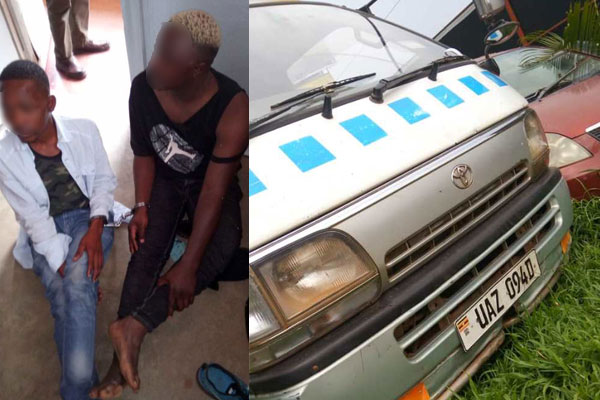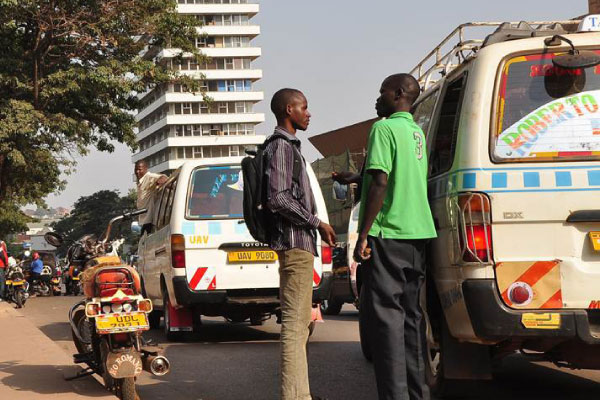Deal with crime by people in taxis and boda boda

Two men detained after they tried to rob police intelligence officers in December 2018. Their taxi was also impounded and parked at Jinja Road Police Station. FILE PHOTOS
What you need to know:
The issue: Crime.
Our view: If the full extent of these crimes is studied, it will become clear how urgent it is to rework the public transport system.
For a number of years now, thugs have used the popular 14-seater commuter taxis to rob unsuspecting passengers. This practice has been reported on Kampala-Jinja road, Ntinda, Bwaise, Wandegeya – virtually everywhere around Kampala. Recently, the thugs have grown bolder and hold their victims at knife point before they dispossess them of everything they have.
There have recently been too many cases that we have heard of. Most of the victims perhaps don’t even report to the police. We will highlight three. Recently, a young woman who lives in Mukono and studies at YMCA Wandegeya, was one of the unlucky passengers who were packed in a vehicle branded as a commuter taxi and were robbed clean, at knife point. She lost her handbag and its contents, money and a laptop. She and the other victims reported a case at Wandegeya Police Station, but she is now frustrated that the case is headed nowhere.
RELATED STORES
Another woman was leaving Namugongo to Kireka at around 10pm. She took the front seat in a commuter taxi, neighbouring a well-built man. A few metres into the journey, her neighbour turned into her tormentor, putting her at knife point and ordering her to surrender everything she had. She gave up her phone, handbag and its contents. She was then thrown out of the moving taxi.
Yet another woman, also from Namugongo, was headed for Tororo on a business trip. She had a few million shillings on her. She took a taxi from Kireka in the wee hours of one morning and less than a kilometre into the journey, the men she had trusted to transport her turned on her and grabbed her money and other possessions. They then threw her out of the moving taxi.
Such cases are so many that if the police called on members of the public who have been robbed or had their possessions stolen by thugs pretending to be taxi operators, Namboole stadium would perhaps fill up with complainants. A big number would also show up if the police called out for people who have been robbed by thugs passing as boda boda riders.
Perhaps because the victims are usually people without a voice – those who rarely appear on television or get column space in newspapers – these crimes are not sufficiently highlighted. And because of this, the police does not pay sufficient attention to them.
If the full extent of these crimes is studied, it will become clear how urgent it is to rework the public transport system – perhaps starting with a registration and filtering process to weed out thugs and make it hard for such acts to happen again. If the police and the government in general paid a bit more attention to this sector, a lot would change.







